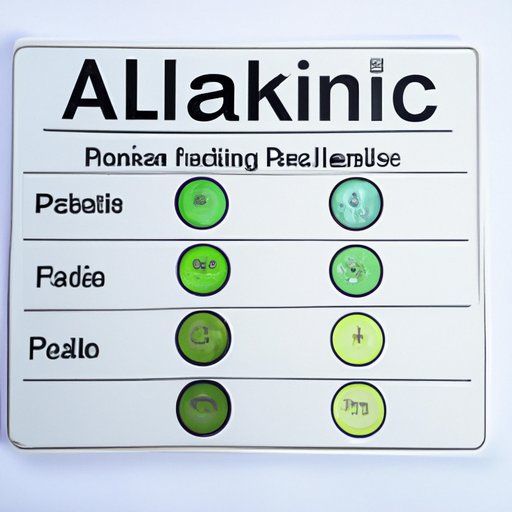
Discovering the Benefits of an Alkaline Diet
Do you want to improve your overall health and well-being? Have you heard about an alkaline diet but aren’t quite sure what it is? In recent years, the popularity of an alkaline diet has increased significantly due to its numerous health benefits. In this article, we’ll explore what an alkaline diet is, the science behind it, and the benefits it can bring to your life. By the end of this article, you’ll be equipped with practical tips and advice to maintain a balanced alkaline diet.
What is an Alkaline Diet?
An alkaline diet, also known as the alkaline ash diet, is a diet based on the idea that certain foods can affect the pH balance of the body. In simpler terms, it focuses on consuming more alkaline foods and fewer acidic foods to achieve a pH level of 7.35 or slightly above. This idea is based on the belief that high levels of acidity in the body contribute to various health problems such as inflammation, poor digestion, and chronic diseases.
The pH scale is a scientific measurement of the acidity or alkalinity of a solution. It ranges from 0 to 14, where 0 is considered the most acidic and 14 is the most alkaline. The human body has a slightly alkaline pH level of around 7.35 to 7.45. When the body’s pH level becomes too acidic, it can lead to a variety of health problems. Therefore, consuming a diet rich in alkaline foods can help maintain the body’s natural pH balance.
Benefits of an Alkaline Diet
An alkaline diet can provide numerous benefits to your overall health and well-being. Here are some of the benefits:
Improved Digestion
An alkaline diet consists of foods high in fiber, such as fruits and vegetables, which can improve digestion and prevent constipation. Furthermore, consuming a diet rich in alkaline foods can help reduce the risk of developing gastrointestinal problems such as inflammatory bowel disease (IBD).
Increased Energy Levels
Many people who follow an alkaline diet report feeling more energized and less fatigued. This is because an alkaline diet encourages the consumption of nutrient-dense foods, which can provide the body with the energy it needs to function optimally. Additionally, by reducing the consumption of unhealthy processed foods, an alkaline diet can help eliminate energy-draining crashes associated with consuming high amounts of sugar and caffeine.
Reduced Inflammation
Inflammation is the body’s natural response to injury or infection. However, chronic inflammation can lead to various diseases such as heart disease, cancer, and arthritis. An alkaline diet can help reduce inflammation by focusing on whole, nutrient-dense foods that are anti-inflammatory, such as leafy greens, olive oil, and nuts.
Research studies have shown that consuming an alkaline diet can help reduce the risk of developing chronic diseases. For instance, a study conducted on women with breast cancer found that an alkaline diet may help prevent the recurrence of cancer cells. Furthermore, another study revealed that an alkaline diet could help increase bone density and prevent osteoporosis in older adults.
Longevity and Better Health
An alkaline diet can help improve longevity and overall health by reducing the risk of chronic diseases like cancer, diabetes, and heart disease. Additionally, consuming an alkaline diet can help maintain a healthy weight, since alkaline foods are typically low in calories and high in nutrients.
Moreover, an alkaline diet can help increase the body’s secretion of growth hormone, which can improve muscle mass and bone density. Additionally, growth hormone can help reduce the risk of developing age-related diseases such as Alzheimer’s disease and dementia.
Maintaining a Balanced Alkaline Diet
Maintaining a balanced alkaline diet doesn’t need to be complicated. Here are some tips and advice to help you incorporate an alkaline diet into your lifestyle:
Eat a Variety of Fruits and Vegetables
An alkaline diet focuses on consuming a variety of fruits and vegetables, which can provide the body with the nutrients it needs to function optimally. Aim to consume at least five servings of fruits and vegetables per day.
Avoid Processed Foods and Sugar
An alkaline diet encourages the consumption of whole, nutrient-dense foods while avoiding processed foods and sugar.
Stay Hydrated
Staying hydrated is essential when following an alkaline diet. Aim to drink at least 8 glasses of water per day to help flush out toxins and maintain a healthy pH balance.
Alkaline vs. Acidic Foods
Alkaline foods include fruits, vegetables, nuts, and legumes, while acidic foods include meat, dairy, processed foods, and sugar. Consuming a diet high in acidic foods can lead to an imbalance in the body’s pH levels, which can contribute to health problems. Therefore, an alkaline diet focuses on consuming more alkaline foods and fewer acidic foods to maintain a healthy pH balance in the body.
Conclusion
An alkaline diet can provide numerous benefits to your overall health and well-being. By incorporating more fruits and vegetables into your diet while reducing the consumption of processed foods and sugar, you can achieve a healthy pH balance in your body. Furthermore, an alkaline diet can help prevent chronic diseases and improve longevity, making it a worthwhile lifestyle change for anyone seeking to improve their health.




